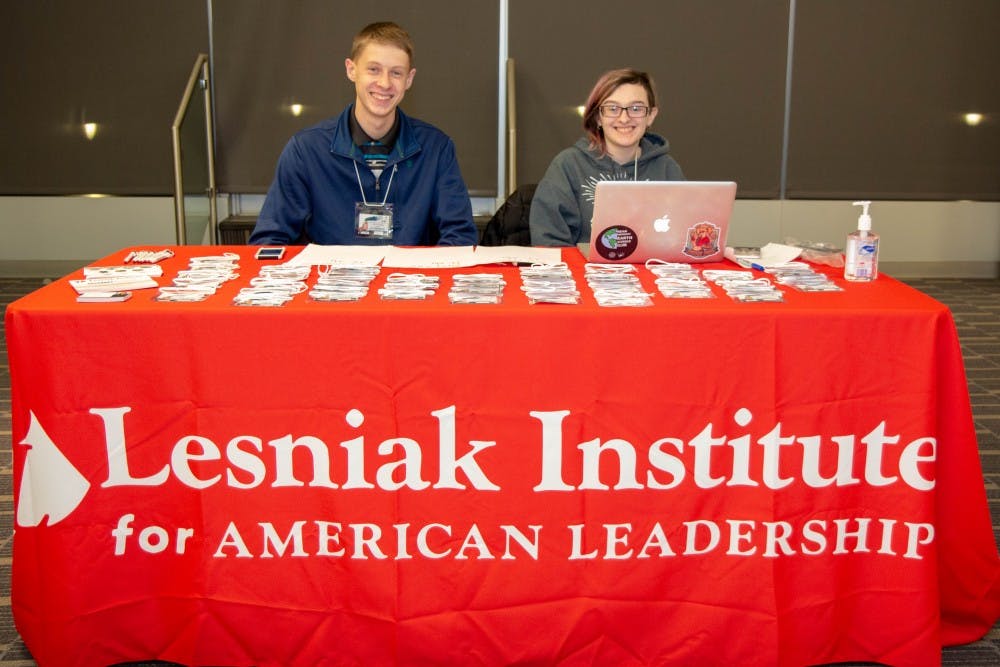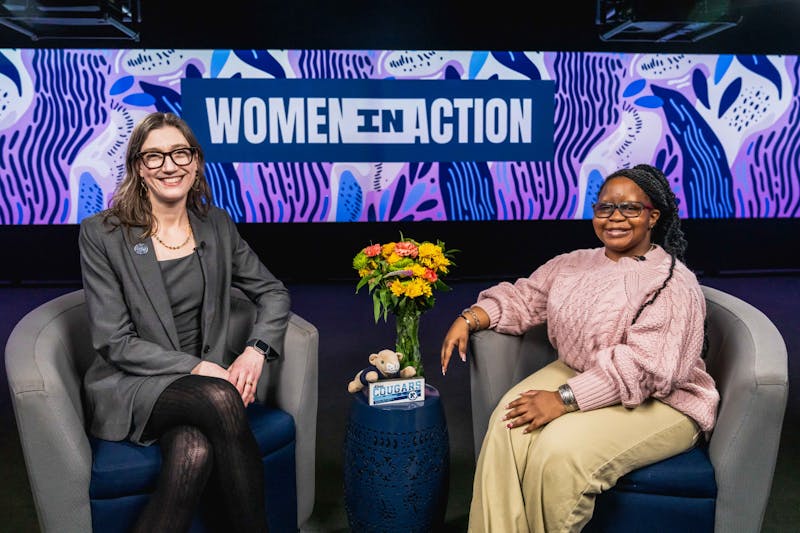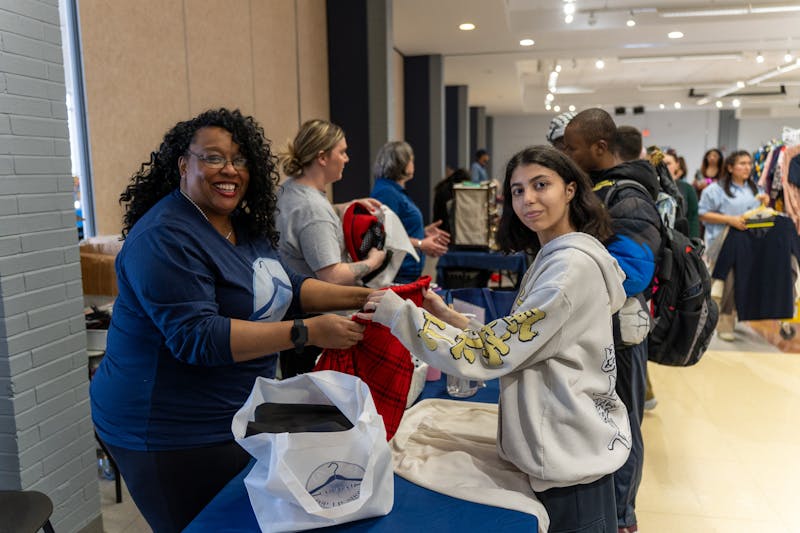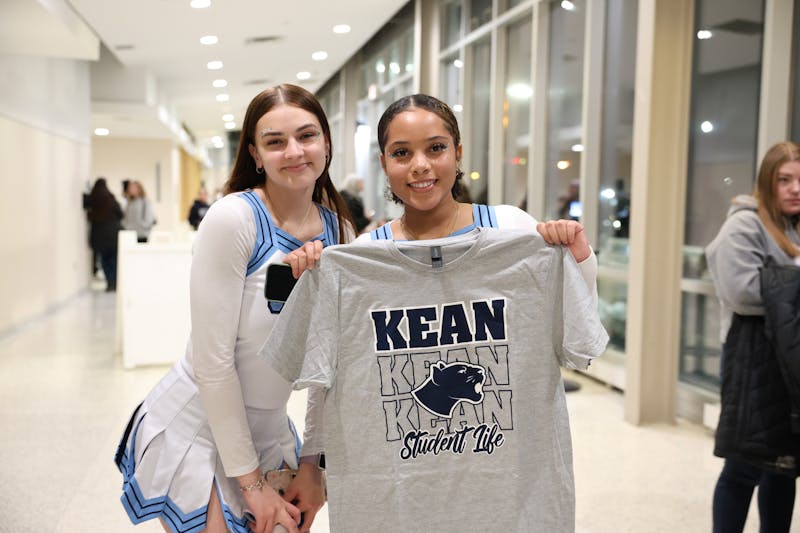In a joint-effort with Kean Earth Science Club, New Jersey Higher Education Partnership for Sustainability (NJHEPS), and Kean School of Environmental and Sustainability Sciences (SESS), the Lesniak Institute for American Leadership hosted the second annual "Let's Clear The Air: A Student-Led Symposium" Wednesday, Nov. 14 from 6 to 9 p.m. to help promote environmental advocacy in New Jersey.
The event's second rendition featured 11 environmentalist leaders and student representatives from nine different colleges and universities in New Jersey, including Kean University, Rutgers University, Stockton University and Princeton University.
Sarah Mack, director of The Lesniak Institute for American Leadership, opened the event by introducing the founder and president of the Lesniak Institute, Elizabethport native, former state Sen. Raymond Lesniak.
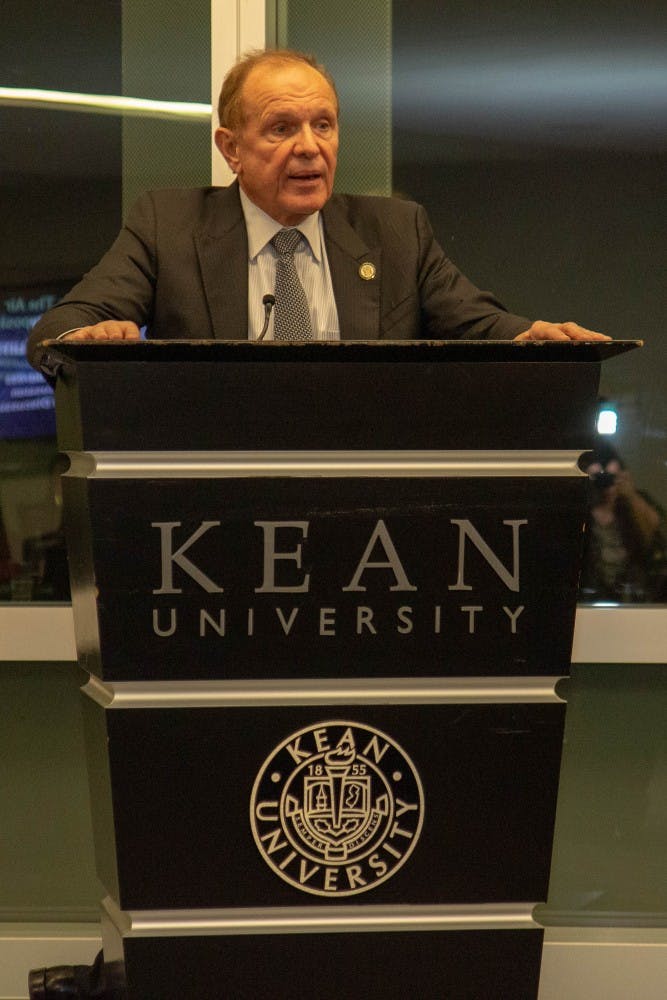
Senator Raymond Lesniak addresses the audience at "Let's Clear The Air".
Lesniak began his opening remarks by stating his life-long passion for protecting New Jersey's environment and natural resources.
"I started protecting the environment in the 1980s...At one point in time there were barrels and barrels of hazardous waste being stored totally recklessly, and it blew up one day," Lesniak said. "It sent a toxic plume across not only Elizabeth, but Staten Island and Lower Manhattan. This made me say, 'Well, why don't I do something about that?'"
Over three decades later, Lesniak, with his previous experience growing up as inspiration, is still at the forefront of the clean air battle in New Jersey and the United States.
As students and attendees ate a variety of freshly prepared food on fully compostable plates and utensils, Lesniak introduced multiple potential solutions for New Jersey residents looking to take environmental action, hoping to illustrate the need for both awareness and action in combating the ever-present issue of pollution in our state.
Firstly, Lesniak introduced his plan to support the Green Amendment for the US Constitution, which states that all Americans have the fundamental right to a healthy living environment.
The Green Amendment also holds the federal government accountable for any environmental mishaps or crises that may occur and even gives citizens looking to be activists themselves the right to take legal action against the officials responsible for said mishaps. Additionally, Lesniak looked to introduce stricter enforcement and regulations regarding the thousands of diesel trucks polluting New Jersey's air in lower income areas.
Stagnant air from idling and slow-moving diesel trucks has been linked to asthma, certain cancers, birth defects and other breathing-related issues in Elizabethport, Ironbound/Frelinghuysen sections of Newark and areas directly surrounding the Port Authority region.
To further illustrate this point, Lesniak and his colleagues displayed a short feature film surveying and studying truck traffic on First Street in Elizabethport, titled "Countdown to Clean Air".
Previous to 2017, trucks traveling between Exits 13 and 13A on the New Jersey Turnpike frequented First Street in the numbers of hundreds per hour to save money by bypassing a toll. A previously mostly industrial area, First Street now houses thousands and features multiple schools, athletic fields, a childcare center and even a water park.
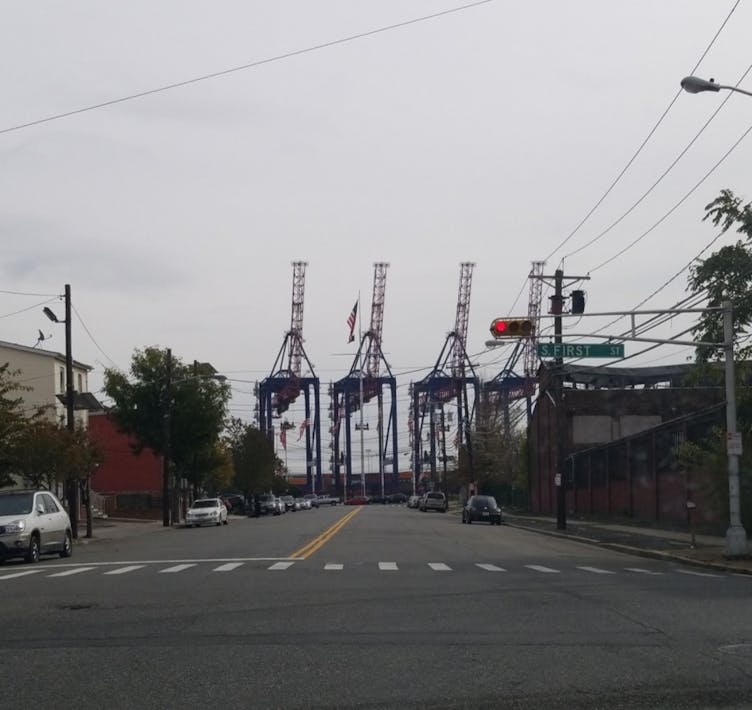
Trucks traveling between Exits 13 and 13A on the New Jersey Turnpike frequented 1st Street in Elizabethport by the hundreds per day to help avoid a toll.
Feeling the need for action, local residents contacted Robert Laumbach, third speaker of the evening and director of community outreach for Rutgers Center for Environmental Exposures and Disease for help.
"This was a community that needed and demanded answers," Laumbach said.
In a 2013 study conducted by the Rutgers Center for Environmental Exposures and Disease, truck traffic on First Street in Elizabethport was responsible for increasing particulate matter air pollution, or the particles necessary for causing asthma and cancerous development, by up to six times as much as a typical New Jersey street.
Increases in total amount of traffic, travel times, traffic infractions, incidents with pedestrians and motor vehicles and more also were direct results of heavy truck usage on and around First Street as a result of the toll bypass.
Due to these unhealthy and difficult circumstances, members of the local neighborhood including Walter Leak decided that enough was enough.
Leak, an activist and trustee of Mt. Calvary United Church and fellow truck driver himself, recognized the dangers of truck traffic in local neighborhoods and the significance and power that a united community can bring when tackling issues such as the one faced on First Street.
"I used to drive up and down First Street myself," recalled Leak. "I collected hundreds and hundreds of signatures, and been to the [Elizabeth] City Council countless times. This community needs to know what's in our air."
Through tedious petitioning, dedicated and meticulous research and the contributions of much of the local community, truck traffic decreased 86 percent up until the formal ban of trucks on First Street by the City Council of Elizabeth in 2017.
Particulate matter air pollution saw an approximate 80 percent decrease in the neighborhoods surrounding First Street since the initial count in 2013, reflecting the community's progress to ensure their well-earned clean air and efforts to decrease local truck traffic.
After discussing the successes of the community of Elizabethport thoroughly, the event shifted to the "round table discussion" time period, allotting those attending to participate in various topics of discussion regarding environmental issues and scenarios both locally and internationally.
Said discussions were led by moderators for roughly an hour, and groups were to record and be prepared to present any findings. This period allowed for close exchange between environmentalists and students on a more interpersonal level.
Topics to be discussed focused toward each moderator's area of study. This encouraged flow of factual information by having an expert in each round table discussion and allowed for any student or attendee to present potential findings or solutions to their table's moderator who could be of assistance to a student's ideas.

Those attending the event also were encouraged to participate in roundtable discussions, encouraging discussion of various environmental topics.
Students and other attendees alike had 10 different tables to mingle about various environmental issues in New Jersey and similar communities. After discussing thoroughly, a student representative from each group presented the findings or action plans of their particular topic or investigation.
Findings were encouraged to be progressive, realistic and potentially applicable ideas to help further the process of bettering the state's air quality and overall environment. Some of the more intriguing ideas included instilling stricter emission regulations for trucks that actively serve the Port Authority region, various potential changes to how Kean University powers their campus, planning for unexpected environmental disasters in New Jersey and more.
After each of the 10 groups finished presenting their solutions, members of The Lesniak Institute took time to issue their final remarks on the evening.
Lesniak closed with a powerful statement and call to action.
"The way to make America great again is by building a social conscious, and that's exactly what I saw being done tonight," Lesniak proclaimed. "You students are the future."
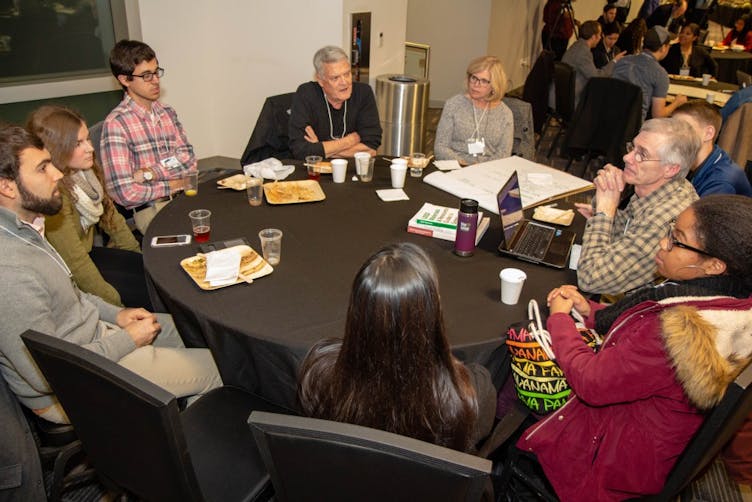
The second rendition of "Let's Clear The Air: A Student-Lead Symposium" was a great success.
Paige Alonso, director of public relations and social media for The Lesniak Institute, offered the closing remarks.
"I first wanted to stop and thank everyone for coming...I just wanted to thank all the special people that made this event happen," Alonso started.
Alonso also encouraged everybody in attendance to use the many platforms available to those looking to create change to help inspire others to become advocates and activists themselves.
"We [The Lesniak Institute] developed a tool that is a great way that you can directly take action," Alonso advised.
The aforementioned tool provides information on both the Green Amendment and potential bills in place to regulate diesel trucks in New Jersey.
Additionally, contact information pertaining to those responsible in government for change in regards to the previously mentioned legislation is provided, including Governor Phil Murphy's email.
"Tonight was a great way to start taking action," Alonso concluded.
The event's success both in person and on social media encouraged the continuation of the now annual tradition, as the awareness and advocacy fostered is viewed as a great medium to help inspire young people and citizens alike to step up and take action in their own backyards.
Those interested in finding more information about The Lesniak Institute for American Leadership can visit their webpage or their Facebook page.


